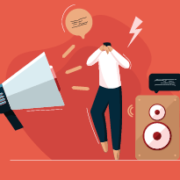Ototoxicity and How to Avoid It
While the two most common culprits of hearing loss are loud noise and age, certain chemicals and medications can also damage the inner ear. This is called “ototoxicity, which literally means “ear poison.” Ototoxicity can lead to hearing loss, tinnitus, and balance disorders.
Common ototoxicants
According to the U.S. Occupational Safety and Health Administration (OSHA), there are four main categories of ototoxicants:
- Pharmaceuticals, such as loop diuretics, selected analgesics, some chemotherapy medications, and certain antibiotics
- Solvents, such as toluene, ethylbenzene, and trichloroethylene
- Asphyxiants, such as carbon monoxide, hydrogen cyanide, and tobacco smoke
- Nitriles, such as 3-butenenitrile, cis-2-pentenenitrile, and acrylonitrile
- Metals and compounds, such as mercury compounds, germanium dioxide, and lead
Since most people don’t keep industrial-grade solvents and compounds in their homes, the ototoxicants you’re most likely to encounter are nonsteroidal anti-inflammatory drugs (NSAIDs) such as aspirin, ibuprofen, and naproxen sodium.
Symptoms of ototoxicity can include nystagmus (involuntary eye movement), headaches, fatigue, nausea, and vertigo. Prior to the development of hearing loss, tinnitus will usually appear first.
Can ototoxicity be treated?
Because the hair cells of the inner ear are so delicate and easy to damage, there’s no real treatment for ototoxicity. Prevention is always the best course of action. That said, hearing and balance can often recover once exposure to the ototoxicant has ended, though it may take months. In the event that hearing is permanently changed, hearing aids and auditory rehabilitation measures are extremely helpful. An audiologist or other hearing care professional can help you explore the options.
Can ototoxicity be avoided?
In the short term, yes. By avoiding contact with ototoxic substances, you can keep your ears safe from their effects. In the longer view, the answer is “probably not.” With hundreds of known ototoxicants out there in the world, staying away from them all is very difficult, and since many are life-saving medications such as chemotherapy drugs, we wouldn’t recommend that you try. Risk must be weighed against benefit.
There is good news, however. With awareness of ototoxicity on the rise, many drug manufacturers are exploring ways to reduce this particular side effect and develop better treatments that don’t harm our hearing as much. Discussing concerns about ototoxicity with your doctor is always advisable, and, when it comes to occupational exposures, getting clarity on exactly what substances you’ll be working with and what your employer is doing to mitigate risk will arm you with the knowledge you need to stay safe.
Ototoxicity is a common hearing hazard, but that doesn’t mean you can’t be proactive about your hearing health. If you or a loved one is taking ototoxic medication or experiencing symptoms of ototoxicity, make an appointment for a hearing screening today.



